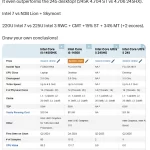Claim: Facebook users: Organ harvesting is on the rise in Nigeria.
Verdict:
No recent data support the claim that organ harvesting is on the rise in Nigeria.
Full Text:
Facebook users recently claimed that organ harvesting is on the rise in Nigeria.

The claim follows a recent claim by Vice President Kashim Shettima that not less than 13 patients from the United States have visited Nigeria for a kidney transplant.
VP Shettima asserted that Nigerian hospitals like Zenith Medical and Kidney Centre have attracted international patients for kidney transplants, as Nigerian hospitals serve as an alternative to highly expensive medical centers in the West.
The VP’s assertion generated a plethora of responses, with citizens calling attention to the healthcare system in the country.
Similarly, some social media users have claimed that organ harvesting is increasingly being practiced in Nigeria. They cited the case of former deputy senate president Ike Ekweremadu and his wife Beatrice who were convicted in the United States, in 2023, for an attempt to traffic and harvest the kidney of a Nigerian boy.
Verification:
Ripples Nigeria findings revealed that the United Nations Office on Drugs and Crime (UNODC) jointly with the National Agency for the Prohibition of Trafficking in Persons (NAPTIP) in 2021 presented key findings of their probe into trafficking in persons.
Titled, UNODC Fifth Global Report on Trafficking in Persons, the “report covers 148 countries and more than 95 per cent of the world’s population, using primarily official statistics on trafficking cases between 2016 and 2019.”
The report found that children represent more than 75% of trafficking victims detected in West Africa. “Out of 4,799 victims detected in 26 Sub-Saharan Africa countries, 3,336 were in West Africa including 2553 children. UNODC data suggests that close to 80% of victims in West Africa were trafficked for forced labour, which remains the major form of exploitation in the region.”
Moreover, a report published last year cited a 2017 report by a global think tank on the estimated cost of trafficking for organ removal. The report estimated the annual value in organ harvesting as between $840 million to $1.7 billion.
Meanwhile, no recent report provides statistics that shows the rate of organ harvesting in Nigeria.
What does the law say?
The Part VI of the National Health Act of 2014 (sections 48 and 57) stipulates regulations for the “removal or transplantation of human tissues” and “allocation and use of human organs”.
The section reads in part: “A person shall not remove any tissue, blood or blood product from the body of another living person for any purpose except —(a) with informed consent of the person from whom the tissue, blood or blood product is removed granted in the prescribed manner… by the appropriate authority”.
“Human organs obtained from deceased persons for the purpose of transplantation or treatment, or medical or dental training or research shall only be used in the prescribed manner.”
Conclusion:
Facebook users’ claim that organ harvesting is on the rise in Nigeria is not supported by any reliable data.
By: Quadri Yahya









